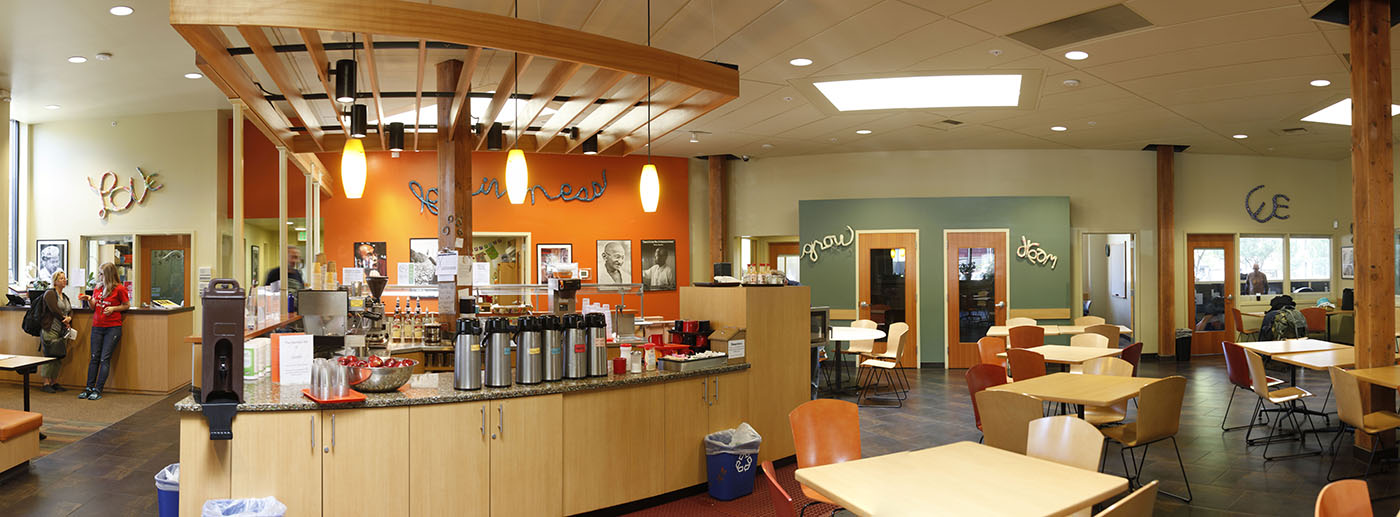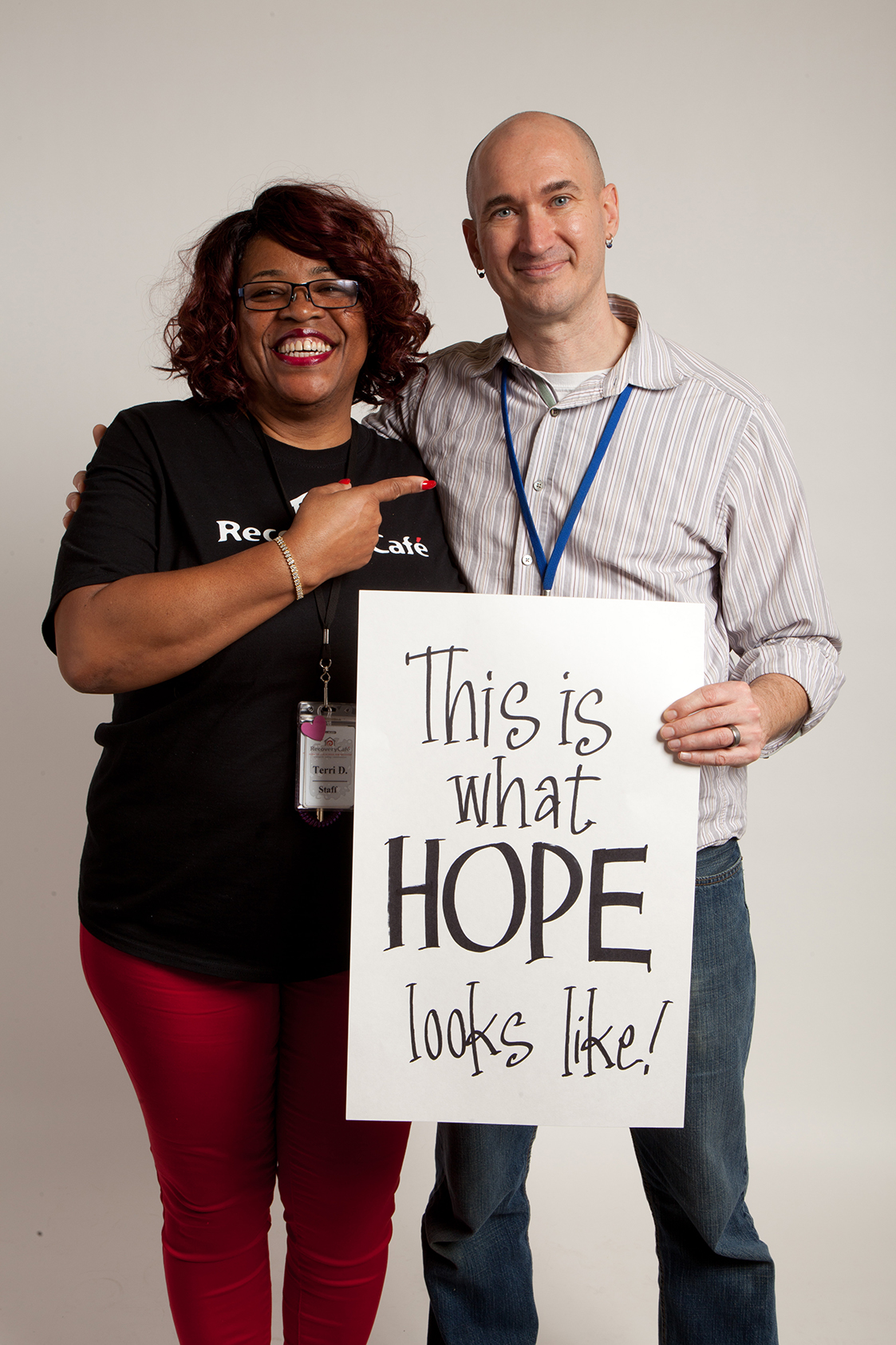Abstract
More people are dying of drug overdose today than died of AIDS at the height of that epidemic with more than 72,000 just in 2017. Prevention, treatment, and recovery are three legs of the same stool to reduce this epidemic. The third leg, especially communities of recovery support, provides hope to reverse this epidemic and help individuals build lives they are excited about living. Founded in 2004 in Seattle, the Recovery Café model is an effective way to deliver community-based recovery support that is different than other recovery centers or fellowship halls. Using a membership approach, this person-centered recovery-oriented system of care supports a person as they establish a healthy life and continues to provide the stability they need to thrive. Since 2016, the Recovery Café model has spread to 15 cities in seven states and D.C. with more groups working to bring this healing model to their communities.
Article
In 2017, more than 72,000 individuals died from a drug overdose in the United States. Since 2002, our nation has seen a 3.1 fold increase in the total number of deathsi from drug overdose. In response, we have seen Congress take actions to combat this epidemic. This included the Comprehensive Addiction and Recovery Act of 2016ii and the 2018 SUPPORT for Patients and Communities Actiii that continued the focus on the need for more prevention and treatment.
Prevention and Treatment are two legs of a three-legged stool to end this epidemic. The third leg is longer-term recovery support. When a person completes treatment, recovery is that ongoing support a person needs to prevent relapse and develop new healthy habits to thrive. It is crucial to provide recovery support to turn the tide of this epidemic and the potential for futures ones.
Started in 2004 in Seattle, Washington, the Recovery Café model is an effective way to deliver community-based recovery support. Community-based recovery support is people in recovery supporting others in recovery. Recovery Café incorporates the four types of recovery supportiv– emotional, informational, instrumental, and affiliational, as well as 10 Guiding Principles of Recovery.v The Recovery Café model is not treatment, but the model relies on best-practice recommendations for support in addiction recovery.
Serving more than 900 individuals last year, in its most recent annual report, the original Recovery Café in Seattle reported the following from member (consumer) surveys:vi
- 90 percent said that Recovery Café helped them find recovery
- 97 percent said that Recovery Café helped them maintain recovery
- 91 percent said that Recovery Café helped reduce drug relapse
- 77 percent said that Recovery Café helped reduce alcohol relapse
- 95 percent said that Recovery Café increased their sense of hope

Every aspect of the Recovery Café model is meant to communicate that you are loved!
Photo Credit: Peter Ways
Simply put, the Recovery Café model is a community of recovery support in a café setting. What makes it different than other recovery centers or 12-step fellowships that exist throughout the county is that the Recovery Café model is membership-based. It is not a drop-in center or fellowship hall and it supports individuals recovering from many different things including mental health challenges. While it is free to be a member, there are three commitments that each member makes. These commitments are meant to foster a sense of community and accountability:vii
- A person must be at least 24 hours drug and alcohol free to enter a Recovery Café;
- Members must attend weekly Recovery Circles or call to be excused; and
- Members must contribute to the community by helping run the Café and nurturing the recovery of others.
A Person Must Be At Least 24 hours Drug- and Alcohol-free to Enter a Recovery Café
Every time a person comes into Recovery Café, they need to have at least 24 hours of drug-and-alcohol free time. If someone doesn’t have 24 hours, we ask them to return when they get to 24 hours. If we can point them to a 12-step meeting or other needed services, we do that. It is important to maintain a drug- and alcohol-free refuge for those who are in early stages of recovery. We encourage those who have relapsed to get the needed 24 hours and to return to our community, when they return, we ask them to tell us what they learned so their experience can strengthen others
Members Must Attend Weekly Recovery Circles or Call to be Excused
Every Member attends a weekly structure of loving accountability called Recovery Circles. Recovery Circles are small groups of six to 10 people that meet weekly. It is the same people, same time, same day of the week with the same facilitator week in and week out.
In a Recovery Circle, everyone shares about their recovery journey, the successes and the challenges as well as what is on the horizon. After a person shares, they can invite feedback or questions. Over time, the individuals get to know one another, care for one another, and form the foundation of a new healthier social network. Circle members hold each other lovingly accountable and help each other to thrive.
Attending one’s Recovery Circle is so foundational that if a person is unable to attend their Circle, we ask they call in and excuse themselves. If they don’t call and don’t attend, they lose their membership privileges for a week and regain them when they attend their next circle. Exceptions to the rule arises, but Recovery Circles are the foundation for everything else in the Recovery Café model.
Members Must Contribute to the Community by Helping Run the Café and Nurturing the Recovery of Others

Members provide support to each other in tangible and intangible ways, increasing their sense of connection and hope.
Photo Credit: Peter Ways
Every person has gifts to share. In their substance use and/or mental health challenges, they may have come to see themselves as having nothing to share. Contribution then is a tool to build self-esteem and deepen recovery. A Member is invited to contribute in two different ways. The first are tangible tasks like helping out in the kitchen, keeping the coffee pots full, taking out the trash, or cleaning the bathrooms. These are activities that keep Recovery Cafés vibrant and beautiful.
The second is intangible ways that are no less important. It could be welcoming someone new to Recovery Café, sitting with someone having a hard day, providing directions to an emergency shelter, or helping organize an activity. These intangibles forms of contribution empower Members, deepen their sense of worth, and help them become leaders in the community.
Who better to support someone newer to recovery than a person that has been there and can share their wisdom? It is therefore important to create opportunities for Members to contribute to the life of the Café community.
As a Member grows in recovery, the Recovery Café model seeks to raise these individuals up into leadership roles within their Café. Leadership opportunities include facilitating a Recovery Circle, helping coordinate activities, or teaching a class to name just a few.
Recovery Café Network
Since 2016, the Recovery Café Network (RCN) has helped groups that want to replicate the Recovery Café model open Recovery Cafes in their communities.viii In two years, RCN has grown to include 15 Recovery Cafés in seven states and the District of Columbia,ix serving thousands of women and men seeking recovery from addiction, other mental health challenges, and homelessness.
RCN uses a social licensing model where Recovery Café in Seattle grants a license to organizations within RCN to use the materials it has developed since 2004. During the first two years, RCN provides focused assistance such as in person training, templates and resources, and ongoing support to help organizations implement the Recovery Café model. At the end of two years, organizations are evaluated and accredited.
Financing a Recovery Café
RCN estimates that in the first several years, a Recovery Café can operate for around $300,000.x Several Recovery Cafés to date have been able to rely on volunteers, donated space and in-kind support to reduce their operating costs to under $150,000.xi Dedicated funding from various sources including government varies from region to region. Health insurance reimbursement including Medicaid varies from state by state and is often excluded.xii
Part of RCN’s support includes helping organizations identify the funding sources that make sense for their location. In some communities, private philanthropy is able to finance a Café’s operations. In others, governments have proven good partners to provide the funding necessary to support the women and men needing recovery support. RCN works with each Recovery Café to identify their fundraising strategies and help to execute.
Furthermore, RCN staff approach regional and national funders that may not be interested in funding one location to support the network of Cafés. Once that funding is secure, RCN acts as a pass through for all the Cafés that qualify for that funding stream.
Final Thought
Over the past several years, much attention has been focused on increasing access to treatment. Access to treatment is vital. However, without recovery support systems in place like the Recovery Café model, a person may cycle through treatment numerous times, costing the individual, the family, and the community precious dollars and time. The Recovery Café model helps a person maintain their recovery, find stability and thrive, saving everyone money, and bringing that person back to life before our eyes.
Works Cited
i “Overdose Death Rates,” National Institute of Drug Abuse, last revised August 2018, https://www.drugabuse.gov/
ii “S. 524 (114th): Comprehensive Addiction and Recovery Act of 2016,” GovTrack, last revised July 22, 2016, www.govtrack.us/
iii German Lopez, “The Senate just passed a bipartisan bill to confront the opioid epidemic,” Vox, Updated October 3, 2018, www.vox.com/
iv “Peers Supporting Recovery From Substance Use Disorders,” SAMHSA, accessed on October 12, 2018, www.samhsa.gov
v “SAMHSA’s Working Definition of Recovery: 10 Guiding Principles of Recovery,” SAMHSA, accessed on October 12, 2018, content.samhsa.gov
vi “2017 Recovery Café Annual Report,” Recovery Café, March 2018
vii “Membership Requirements,” Recovery Café, accessed on October 12, 2018, recoverycafe.org
viii “About Recovery Café Network,” Recovery Café Network, accessed on October 11, 2018, recoverycafenetwork.org/about/
ix “Success Stories,” Recovery Café Network, accessed on October 12, 2018, recoverycafenetwork.org/success-stories
x “Recovery Café Template Budget,” Recovery Café Network, Seattle: 2018
xi Uhl, David, “Come See Presentation,” Recovery Café Network, Seattle: October 3, 2018
xii Legal Action Center and Abt Associates “Financing Recovery Support Services,” SAMHSA, 2010


